It was a “debut with no inferiority complex,” writes La Stampa after Enrico Letta’s first European diplomatic tour. The Italian Prime minister, sworn in on April 29, met German Chancellor Angela Merkel on April 30 then French President François Hollande and European Commission President José Manuel Barroso on May 1.
He had to “make himself known in Berlin and Paris, where Italian destiny is decided much more than some think”. Despite his young age – only 46 – he “put on the shoes of a chief of government in a few hours”, notes the daily. But Europe’s confidence will prove much harder to win, adds the daily in an editorial
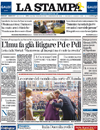
In this most difficult of moments, when Europe’s internal political relations are exceptionally troubled by the ever-growing clash between France and Germany. [Letta’s tour] is the first of a series of meetings in which Italy will have to raise the problem of the difficult – if not impossible – balance between austerity and growth. [...] Italy will forcefully try to get what has been granted to Spain, Portugal and Ireland – a two-year delay of the balanced budget goal set for 2013 [...], that could bring in a €10-20bn bonus to help the economy overcome its current impasse. Italy is now in an absurd position: it contributed massively to the ESM to save struggling countries like Greece, but is not allowed to spend a single billion to jump-start its own economy.
Receive the best of European journalism straight to your inbox every Thursday
Letta’s early diplomatic tour was “a good idea”, estimates Il Sole 24 Ore, not only to underline “Italy’s more political stance on the continental stage,” but also to consolidate his position in the face of the disputes – namely on the refund of the housing tax asked for by PDL leader Silvio Berlusconi – that are already shaking the grand coalition supporting his government. The newspaper continues that Letta
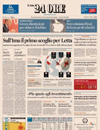
laid his cards on the table, resurrecting the long-forgotten objective of a political Europe. Now the chancellor knows that the tune has changed and the new majority’s goal is to retake possession of the European ideal with economic development as a priority. [...] The 25 per cent of the vote taken by the anti-establishment Five Star Movement is a bell that didn’t ring only in Italy: the menace of populism threatens all of Europe and must be fought also by rebuilding the traditional Italian-German axis.
From the German side, Die Zeit reflects on the "smart boy" who has succeeded the “smiling charmer" Berlusconi and the "courteous professor" Monti.
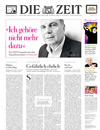
Letta wishes to establish a relationship of trust with the German chancellor. As relations with Germany are of decisive importance for his government [...] Letta needs strong cross-party legitimacy in Europe. Because without it, he will fall victim to the whims of his government partners.
As for the idea of an alliance with France’s François Hollande in order to "seek a relaxation of the stability pact and [...] deficit targets," Der Standard finds this "completely exaggerated." The Austrian daily says that
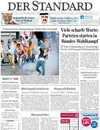
countries like Italy and France, which are the most vocal critics of the austerity policies, are far from having explored all means [of reducing their deficits]. On the contrary, the French government has lowered the retirement age [...] from 62 to 60 last year [...] and the Rome government – under pressure from “the Cavalier” Silvio Berlusconi, is in the middle of unpicking the reforms of the former cabinet.
Enrico Letta’s European trip, in the end, amounts to no more than a “pious pilgrimage”, considers ABC’s columnist Alfonso Rojo. Visiting Berlin first, the new Italian PM simply showed he knows who is in charge in the EU –
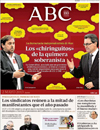
Some people say sarcastically that instead of an official visit, it seems to be a ‘pious pilgrimage.’ A pilgrimage because it is a compulsory trip to make in search of salvation. Pious because it looks like European leaders approach Angela Merkel almost on their knees. […] After the meeting with the chancellor, and in the press conference afterwards, Mr Letta did not seem so fierce. […] Chancellor Merkel repeated the motto that Europe “has to leave the crisis stronger than when it entered” and everyone smiled, although the game is clear. Enrico Letta, as François Hollande learnt and Mr Rajoy made clear, does know who is in charge in the EU.
Was this article useful? If so we are delighted!
It is freely available because we believe that the right to free and independent information is essential for democracy. But this right is not guaranteed forever, and independence comes at a cost. We need your support in order to continue publishing independent, multilingual news for all Europeans.
Discover our subscription offers and their exclusive benefits and become a member of our community now!












